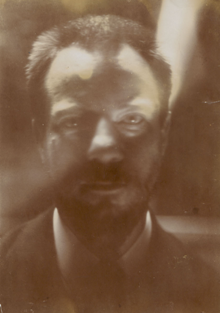Albert Verwey > Albert Verwey: poet and translator
The versatile Albert Verwey thought of himself first and foremost as a poet. It was Willem Kloos, the leader of the Movement of the Eighties, who encouraged and critically supported the young Verwey in this. Initially, Verwey was a real man of the Eighties but he quickly developed his own tone and themes. His poems went from being impressionist to philosophical, for which he drew his inspiration from Spinoza.
Verwey made his debut in 1885 with Persephone and other poems. In 1889, this was followed by the sonnet collection From Life. This was quickly followed in the same year by his Collected Poems, but Verwey - a mere 24 at the time - went on to publish many more collections. A few titles: The new garden (1898), The Burning Blackberry Bush (1899), The Crystal Twig (1903), The Unmarked Universe (1908), The Visible Secret (1915), The Path of Light (1922), The Lifted Burden (1927) and The Laughing Riddle (1935).
In addition to being a poet, Verwey was also anthologist and translator, particularly of other poets. In 1923, he published a translation of Dante's The Divine Comedy and in 1933 a translation of the sonnets of Shakespeare. Furthermore, he translated work by Percy Bysshe Shelley, Hugo von Hofmannsthal, Friedrich Hölderlin and Stefan George.
next >>

